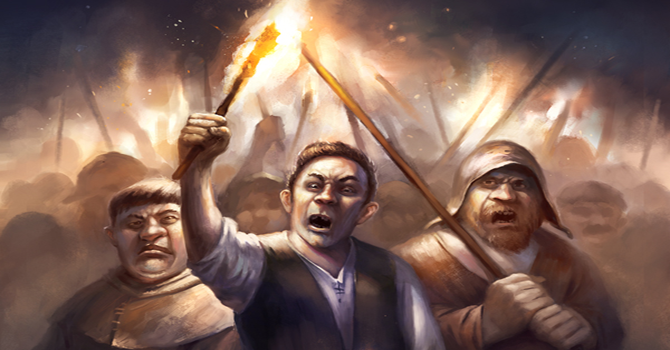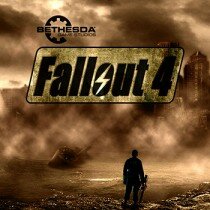Recently I’ve been playing Bioware’s stellar fantasy title Dragon Age: Inquisition – XboxOne & PS4" href="/reviews/dragon-age-inquisition-xboxone-ps4/">Dragon Age: Inquisition (my second playthrough) and for all its immense quality and engagement, one thing left a real sour taste in my mouth.
The thing is, though, it’s through no fault of Bioware or even EA; not really…
First off, fair warning: there are some technical spoilers for the structure of the ending of Dragon Age: Inquisition (oh and Mass Effect 3). I’ll try not to spoil the story proper, but still, take heed all ye who enter here…
It all began as I finally finished off the final boss and reclined as the credits rolled, savoring that unique mix of satisfaction, contemplation and slight melancholy you get on completion of a long and truly great game. As I sat there, looking back on the preceding hundreds of game hours, the epilogue kicked in.
And the more I watched, the more uneasy I got…
Now, don’t get me wrong, there was nothing bad or offensive about the epilogue at all. Indeed, it was a perfectly adequate summary of what happened to various people/groups from the game and it detailed the ramifications of the choices made throughout. A touch trite, if I’m honest, but all such things are, so the game was none the worse for it.
But then the thought crossed my mind; ‘well, this won’t cause an outcry like the Mass Effect 3 ending did’. And that, really, was the problem and the thing that made me feel a bit wearied with the industry.

Yeah, exibit A…
For those who didn’t experience the Mass Effect 3 ending furore let me give a brief summary. Mass Effect Trilogy – Defining A Generation" href="/reviews/mass-effect-trilogy-defining-generation/">Mass Effect 3 (also from Bioware) featured a series of three games spanning one overarching narrative, in which the player’s decisions and actions had lasting repercussions later on. Many fans, myself included, became invested in the characters and storylines of the series, so well told was it. However, when the third instalment of the game arrived the fandom was expecting quite the finale at its conclusion. In the event, what actually appeared was a much more minimalist interpretation of an epilogue than what was anticipated. Very little was actually ‘tied up’ at the end and little explanation or closure was given to specific aspects of the narrative. Your companion characters did not get extended conclusions and major narrative threads were left unresolved; at least in an explicit manner. Add to this the fact that the last action the player takes in the game is to pick one of three possible actions.
To say the public reaction to this ending was vitriolic would probably be an understatement. A vocal internet presence (I know, shock) decried the ending as a betrayal of the fans and that Bioware had somehow ruined and undermined the whole of the preceding trilogy’s narrative in one fell swoop. Internet memes were created, t-shirts printed, petitions drawn and hate-mail waves were sent. It all got very ugly, very quickly and EA/Bioware eventually caved in, releasing additional ending features as a free Extended Cut DLC.

And the mob wins…
Whether the ending was satisfactory or suitable is a matter of opinion, but to me the whole reaction was hugely disproportionate to the actual issue. It depressed me somewhat to see that people got so upset at what was, in essence, a minor aspect of the narrative. Bioware had realised that any kind of finale would, really, be underwhelming in the context of the three games’ worth of story that had been set up. Hell, with the number of different story decisions throughout the series, the sheer volume of potential endings would be unfeasible from a technical and time perspective. They appeared to have decided to go for the minimalist approach to finalising the story; to allow the epilogue’s finer points to be left to the player’s own imagination; something that was a subtle and appreciable decision, allowing for the player’s unique experience to bleed through naturally into the conclusion. I even felt that, while possibly a bit clunky, the three-decisions ending was not a bad one. Many missed the point that the decision was meant to be defined by the protagonist (and consequently the player’s) experiences and actions throughout the series, rather than the former defining the latter: a subtle, but key, facet that makes a huge difference to your perception of the ending.
However, the public reacted as they did and so, it would appear, got their way.
Contrast the above with the structure of Dragon Age: Inquisition’s epilogue. The key narrative threads are all finalised and detailed, key characters get an outcome and loose ends are tied off, all by a voiceover from fan-favourite character Morrigan no less. Pretty much every possible way of servicing the fans whims.

All the endings you want!
You know what I sensed in the Inquisition epilogue? Concession and repression. Bioware had made damn sure to avoid the possibility of a similar backlash to Mass Effect’s ending and that’s a real shame.
Whether you agree with the way that Mass Effect 3 ended (and for the record I do and, frankly, even if I didn’t, it’s their game so…) surely it’s a bad thing to see a developer curtail their creativity and direction, based solely on a vocal backlash on a previous title?
The games industry is built on creativity; it’s a creative medium, for goodness sake, but more and more we’re seeing creativity levels diminish and developers and publishers reverting to the ‘tried and tested’ method of turning out proven formulas rather than pushing the envelope. Much of that can, admittedly, be put at the feet of commercialisation and the move to big-business development and publishing, but huge, overwrought overreaction to a single aspect of a game that wasn’t quite as expected can be as damaging to the industry as any of that.
In this instance, the vocal uprising was like a child in a supermarket, throwing a tantrum because their parent refused to buy them the sweets they wanted. And the problem is that Bioware gave up and gave the screaming child the sweets they wanted, just to keep them quiet. A dangerous precedent don’t you think?
And so, I found myself enjoying Inquisition’s epilogue, but in the back of my head was a sense of unease, a feeling that maybe, just a little, the lunatics are starting to take over the asylum and that now the industry is being governed by mob rule…
I don’t know about you, but that hardly makes me feel optimistic…
© 2015, zero1gaming.com. All rights reserved. On republishing this article your must provide a link to this original post
About Paul Izod
Paul Izod is a lifelong gamer. Since he was old enough to tap at his Dad's PC's keyboard he's been a gamer. Dedicated and often opinionated, you can be sure he'll always have something interesting to say about the subject at hand. Find him on Twitter at or or email him at
•




